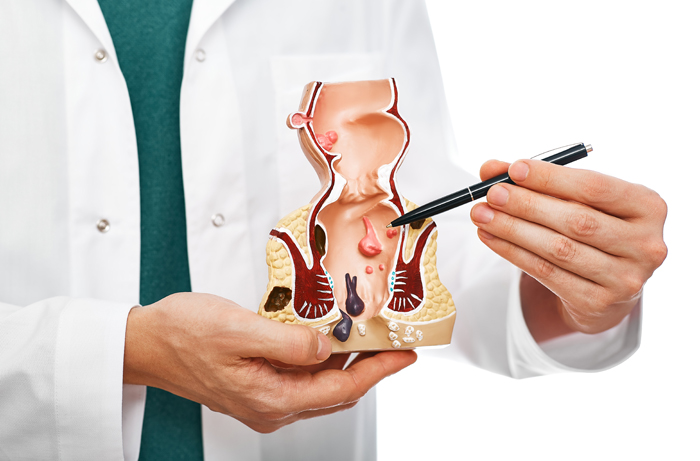Anal Fissures Treatment & Surgery in Tardeo, Mumbai
A tear or a cut on the inner lining of the anus is known as an anal fissure. This tear or cut causes pain and bleeding during and after bowel movements. Sometimes, anal fissures can be so deep the even the muscle tissue beneath the skin of the affected area gets exposed.
Anal fissure is not a serious issue if it heals on its own within a month. However, if it continues without healing for more than 5 or 6 weeks, it can be considered as chronic.

What do we need to know about anal fissures?
The tear in the lining of the anus often exposes the muscle around it, known as anal sphincter. It can lead to muscle spasm, which can aggravate the anal fissure by pulling apart from the edges. This can hinder the healing process. Bowel movements can also put pressure on the fissure and slow the healing process.
Anal fissure is very common in infants and children as constipation is one of the usual problems among this age group. But it can happen to people from all age groups.
To seek treatment, you can search online for a general surgery hospital near me or a general surgery doctor near me.
What are the symptoms of anal fissures?
These include:
- Blood streaks in stool
- Bleeding during or after bowel movement
- Pain and burning sensation in the anal region
- Itching in anal region
- A visible tear or cut in anal region
- A skin lump or bulge near the tear or cut
What are the causes of anal fissures?
Anal fissures are caused due to the excessive stretching of the anal canal. Excessive pressure and poor blood supply can lead to anal fissures. Other causes include:
- Constipation
- Diarrhea
- Passing hard stools
- Childbirth
- Certain sexual activities
- Inflammatory bowel disease (IBD)
- Decreased blood flow in the anal region
When should you consult a doctor?
Usually, people go for home remedies for anal fissures. However, if your anal fissure does not heal even after 5 to 6 weeks, you must consult a doctor.
If you have symptoms of anal fissures, you can visit a gastroenterologist near you.
You can request an appointment at Apollo Spectra Hospitals, Tardeo, Mumbai.
Call 1860 500 2244 to book an appointment.
How are anal fissures diagnosed?
There will be a physical examination. However, a rectal exam can confirm the problem.
For a rectal exam, an anoscope is used, which is inserted into the rectum to have a clear vision of the tear and the anal canal. In certain cases, even an endoscopy is performed for a better evaluation.
How are anal fissures treated?
Your doctor may suggest an ointment like a calcium channel blocker ointment and botox injections for the anal sphincter.
In case these treatments do not show positive outcome, your doctor may suggest a anal sphincterotomy. It is a surgical process where an incision is made in the anal sphincter in order to relax the muscles, which in turn helps anal fissure to heal. A colon and rectal surgeon can help you with the surgery.
Often, an anal fissure can also occur due to an underlying health issue. In such cases, doctors recommend other treatments as per the severity of the underlying problem.
Conclusion
Anal fissures are not a serious or fatal issue. However, it can be quite uncomfortable and hence should be treated properly. Anal fissures are seen in patients with certain diseases like anal cancer, leukemia, HIV, STDs and colitis. As it can happen to men, women and even children, precautions must be taken to avoid it.
One should take healthy diets containing fiber, stay hydrated and take constipation seriously to avoid anal fissures.
It usually takes around a month to completely heal from anal sphincterotomy. But you may return to your normal life after 2 to 3 days following the surgery.
There are certain side effects like difficulty in controlling flatulence and some minor fecal incontinence. These side effects tend to go away as the anus heals.
Symptoms
Our Top Specialities
NOTICE BOARD
CONTACT US
CONTACT US
 Book Appointment
Book Appointment


.svg)
.svg)
.svg)
.svg)








